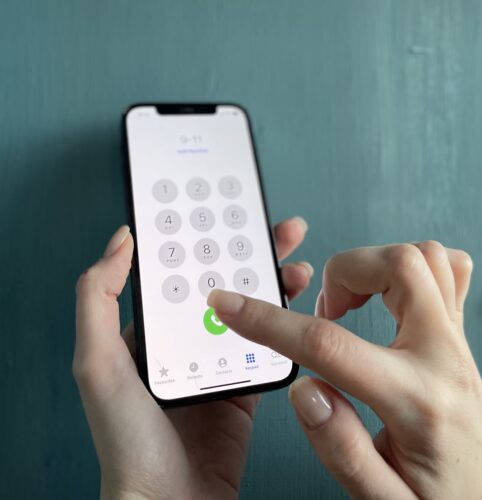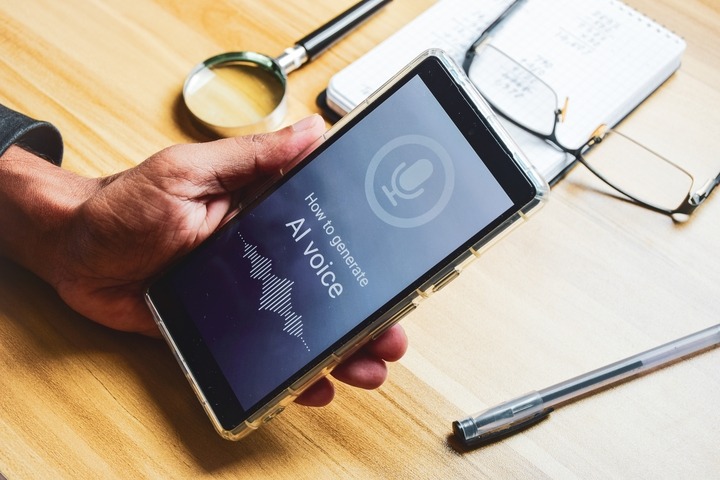Interactive Voice Response systems have made it easy and simple to set up phone call messages and prompts for businesses in every industry. For example:
Welcome to Voice123, where we meet all your voice over needs.
To post a project, press one.
If you need to search for voice actors, press two.
To use our managed services, press three.
Thanks for calling.
While that’s a made-up version – did you know that Interactive Voice Response technology can be traced back to the 1930s’? (Don’t worry, you weren’t redirected to the history channel) But since then, IVR has only become more sophisticated. Instead of relying on directed dialogue, customers can speak directly to your IVR system, which means it’s often your business’s first contact with a customer via a phone call.
Now at Voice123, we know the importance of a great first vocal impression. When it comes to IVR voices, no matter how good your system’s technology is, if your customer hears a badly-recorded or robotic, uninterested voice that sounds impersonal, odds are they’re going to hang up. In fact, poor IVR experience causes 51% of consumers to abandon a business. So if you’re thinking of creating an IVR voice, in this post, we’ll explore what is IVR, why your business needs it, and what to look out for when hiring a voice actor for an IVR voice over.
What is IVR

Interactive Voice Response (IVR) is an automated system that combines telephone and computer technologies to route calls to different departments and create audio messages containing information about the business, which are played to customers. IVR systems use a combination of prerecorded messages and text-to-speech software to store answers for customers’ FAQs. If the IVR doesn’t have what the customer is looking for, the system reroutes them to a call center or an available customer support agent.
One American financial institution answers over ten million customer requests with IVR every year – that’s over half of all their customer calls. Because the best part about IVR is that due to its popularity, software companies now develop IVR systems that you can purchase or rent to use in your own business. From technology like Avoxi – rated the best USA IVR service, to Ultatel – voted #1 in customer support for their IVR solutions. So how do these systems work?
How does IVR work
Interactive Voice Response (IVR) works by using a two-way process to manage inbound and outbound customer calls, so the IVR first greets the customer and gives them a menu of about two to five FAQs through prerecorded messages. Then, the customer presses the corresponding button on their phone’s dial pad or selects the option orally to listen to the answer. Or, they can say a command word like ‘Sales’ or ‘Finance’ to speak to that department. If there are no support agents available or the IVR can’t solve the customer’s problem, the system will open a ticket with the query for the next available agent to address.
Ultimately, customers call in because they want quick answers to their questions and information they can trust. But not all companies can afford to have 24/7 support. And with the ever-growing digital and AI industry – you need an IVR system that meets your customer’s needs.
Why you need an Interactive Voice Response system
You need an IVR system because its self-service capabilities improve customers’ experience by giving them access to quality information they can trust without needing to hold or speak to a support agent. Interactive Voice Response also frees up employees to deal with more pressing issues. It lowers operational costs, and it can handle multiple callers at once and direct them to the right department. It’s available 24/7 to deal with queries from ‘What time do you close’ to ‘How do I open a savings account.’ And if a person was at least able to get their query through, it makes them feel heard and valued.
Now, where and how can you find the right IVR voices? Well, AI is beginning to find its place in the industry, but voice actors are also used for that extra human touch to an IVR voice over. Whether you choose to go down the path of AI or human voices, customers need to hear a caring, empathetic voice. experienced and versatile voice actor can work wonders! So here are a few tips on what to look out for when hiring a voice actor for an IVR voice over.
3 Tips for the Best IVR voice overs

- Does the IVR voice suit the target audience?
Know your caller demographic before choosing a voice type. Will they relate better to a specific voice, gender, and age, or would a combination work better?
- Is the tone of the IVR voice pleasant?
Customers typically need support, so you need an IVR voice that can calm them down while simultaneously addressing their concerns or redirecting them to another agent. So a pleasant, empathetic tone and a soothing cadence are vital.
- Is the IVR voice over able to solve your support problems?
For example, if you need an IVR to simply hold callers on the line, use a gentle and engaging voice. If you’d like to inform them about account updates or refunds, use a voice that sounds capable and authoritative. Always identify the need, then the voice type.
Final Thoughts on Interactive Voice Response
Interactive Voice Response Systems are used in various industries, from retail stores like Walmart to healthcare institutions like hospitals. Because it provides a better customer experience, lower caller volumes, operational costs, and around-the-clock availability. And whether you already have an IVR system in place or you’re considering adding one – don’t forget the power of a professional IVR voice over. Hearing a soothing, sympathetic human voice can help to ease your customer’s frustrations and make them feel valued.
And to choose the right IVR voice, first, assess who your callers are and then choose an IVR voice over type that suits them. Use a voice that has a pleasant, empathetic tone and can cater to the problem you are trying to solve. So now that you know what you need to look for in an IVR voice over, check out these VO pros – it’s as easy as Voice-1-2-3.
FAQs
IVR is customer support software that creates prerecorded audio messages that are played when customers call to give them information without them needing to speak to an agent.
IVR combines phone and computer technologies to create an automated call routing system so that when a customer calls with a query, the system retrieves the prerecorded answer message from the menus or redirects the customer to the right department.
One of the best IVR systems is Avoxi – a cloud-based solution that enables businesses to track all customers’ calls through a centralized dashboard, making it easier to route calls to the different departments and agents.
You can find IVR voices on a voice casting website like Voice123, where you get voice actors with experience in IVR voice overs to be the voice of your system.


































































